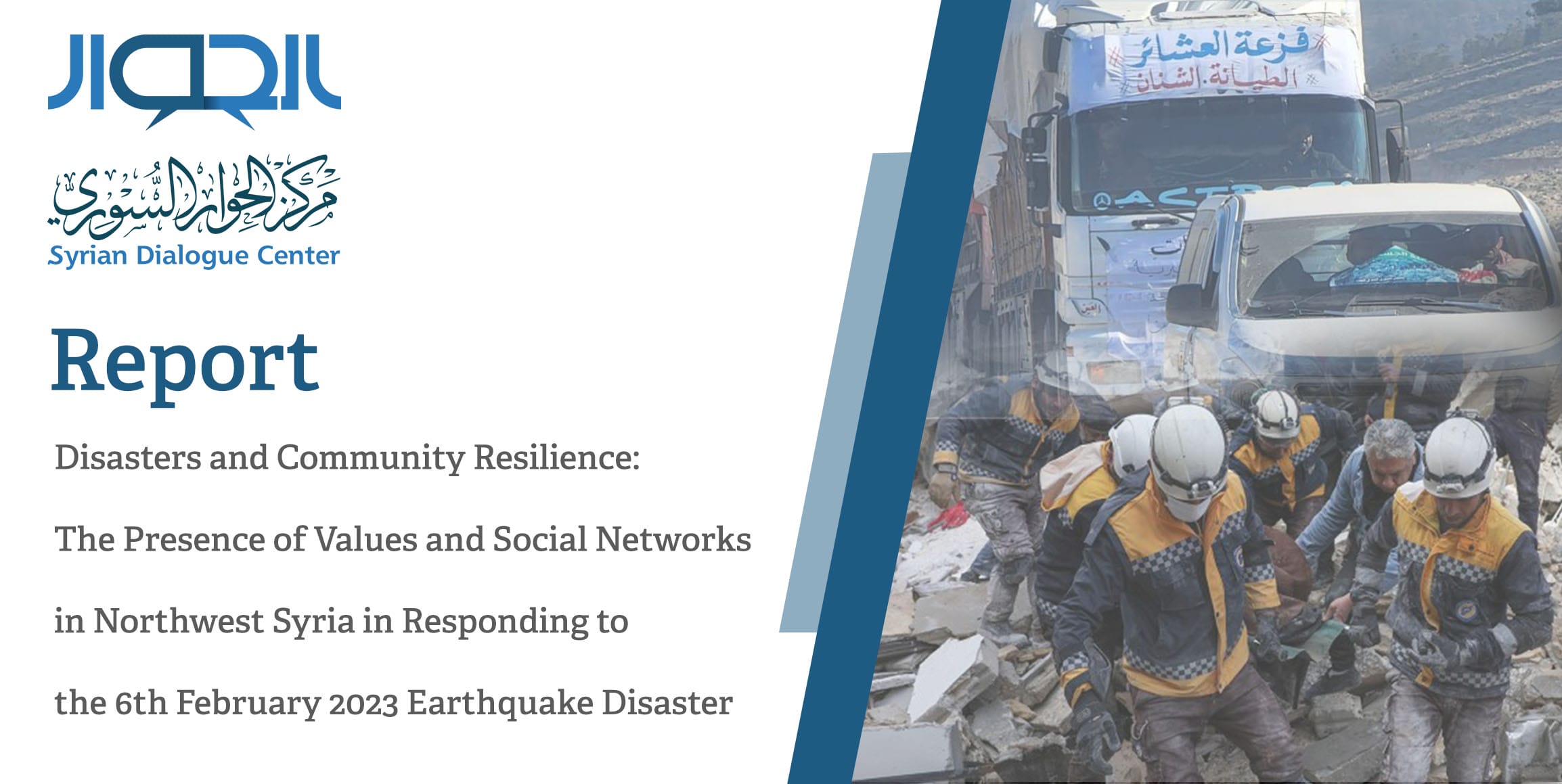
Disasters and Community Resilience: The Presence of Values and Social Networks in Northwest Syria in Responding to the 6th February 2023 Earthquake Disaster
Executive Summary:
International experiences, especially at the beginning of the current century, underscore the role of social values such as volunteering, donation, solidarity, knowledge, accumulated expertise, and information exchange, alongside the traditional or modern social networks, in enhancing the resilience of local communities in the three main stages of disaster management: preparedness, response, and recovery. This notion is further supported by various documents issued by international conferences and forums addressing disaster response.
This report, through a descriptive-analytical approach, reviews the presence of values and networks during the earthquake disaster that struck Turkey and Syria on February 6, 2023, and how was the response in Syria.
The report indicates that the response to the earthquake in Syria relied primarily, especially in the initial days of the disaster, on the culture, networks, and organizations within the community in different ways. The cultural, knowledge-based, and social factors in different control areas interacted with the disaster, contributing positively but not without some negative aspects.
Regarding the values of volunteering and donation, these values spontaneously and directly emerged through aiding others, driven by a mix of religious, social, national, and humanitarian motivations, both at individual and collective levels within and beyond Syria. However, these active efforts faced numerous challenges, notably the lack of organization and chaos, especially in areas controlled by the Assad regime where they faced obstruction by security agencies.
Regarding pre-existing risk awareness, the report noted that the collective memory of past pain resulting from violations, displacement, and recurrent displacement in northwest Syria played a role in absorbing shock for some segments of the population and swiftly engaging in community service and wider civil response. However, the scale of the disaster and its widespread impact on a geographical and human level was an unfamiliar scene, causing gaps in training, preparation, and a lackluster response by some organizations.
Information exchange and social networking contributed to rescue operations, support, and advocacy within and outside Syria, serving as a means to fill gaps in official organization and effective government management by sharing information among friends. In contrast, the Assad regime focused on exploiting networks to conduct a parallel diplomatic campaign to alleviate sanctions.
Trust also played a role, as incidents and behaviors such as spreading empathy, donation, and cooperation across individual and civil institutions significantly raised trust levels. However, these levels quickly declined with the proliferation of smear campaigns.
Similarly, the presence of traditional social networks, starting from families to local communities, played a fundamental role in rescue operations, search for missing individuals, fundraising, service provision, and material and moral support. However, their solidarity also led to heightened sensitivities and division in afflicted areas.
Modern networks, representing civil society organizations, played an active role in northwest Syria through various efforts, with positivity being the predominant feature characterizing their work. However, several negatives affected the quality and efficiency of their response, including organizational and collaborative gaps among these entities.
The report highlighted the negative role of the Assad regime, even in humanitarian and social aspects. Its response to the disaster was catastrophic, not just for its opponents but also for residents within its control areas. It leveraged the disaster through its civil arms like the Red Crescent and the Syrian Trust for Development to control aid. Additionally, Iranian proxies reinforced Iran’s project and presence in Syria.
Read the full report (Arabic)






